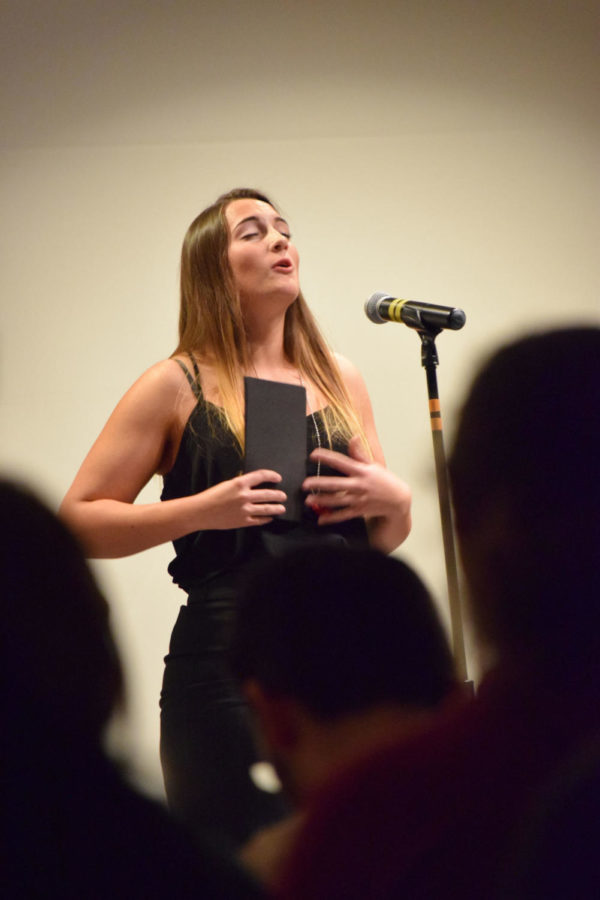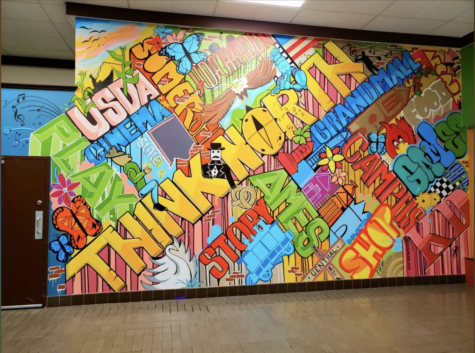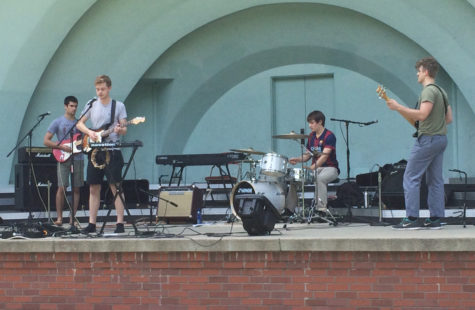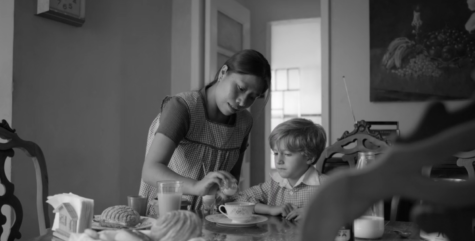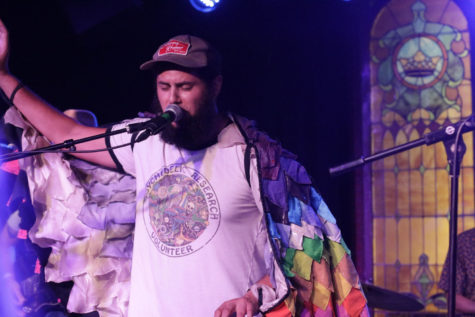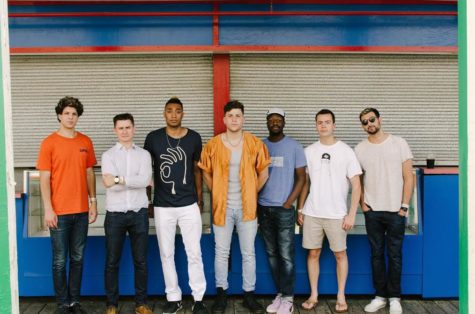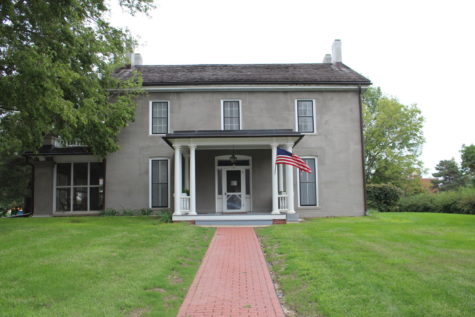- Ames247
- App Content
- App Content / Lifestyle
- Limelight
- Limelight / Culture
- Limelight / Culture / Campus Culture
- Limelight / Events
- Limelight / Reviews
The Vagina Monologues as relevant as ever
February 17, 2017
“If a vagina could talk, it would talk about itself.”
It might be uncomfortable for some to sit and listen to blantant usage of the word “vagina” and its many nicknames for an hour and a half, but nearly 300 people came to the Sun Room at the Memorial Union Friday night to hear that and more.
“The Vagina Monologues” are a series of interviews from 200 women talking about their vaginas. Eve Ensler wrote the monologues in 1996 and allows them to be performed under the condition that the production not alter the scripts in any way. The production was put on in a collaborative effort between the Margaret Sloss Women’s Center, the Society for the Advancement of Gender Equity (SAGE) and the Student Union Board (SUB).
The monologues have been performed at Iowa State for sixteen years. Proceeds from the event go to benefit the Assault Care Center Extending Shelter and Support (ACCESS). Along with ticket sales, proceeds include sales of vagina-related items bought at the door such as vulva keychains, uterus cookies, and t-shirts that read “I <3 Vaginas”.
Audience members took their seats and ate their chocolate vulva pops as the lights dimmed in the Sun Room. The introduction set the pace for the forward but always true message of the monologues. The performers dressed in dresses – short and long – or blazers and slacks but they were uniformly wearing black.
No vagina-related topic was left untouched. There were various nicknames discussed, with the crowd favorite being “The Little CyRide”.
The monologues were sometimes humorous and sometimes brutal. One woman’s account talked about hair and being asked why she didn’t want to please her husband. Another discussed repeated torture of a male-to-female transperson.
One monologue described a female sex worker; this one started out as a semi-serious account and evolved into a display of sexual moans based on certain groups of people that seemed to come right out of a stand-up comedy show and left many in the audience with tears in their eyes from laughing so hard.
Issues often went beyond the vagina, as well. War was intertwined with one woman’s account of rape. Child sexual abuse was at the center of one monologue. Social issues were introduced in discussing body revolution in context with political or economic standing and “reclaiming” the “C” word.
An ACCESS advocate was available for support in the chance anyone could become triggered or too uncomfortable by the issues discussed.
Some people in attendance shifted in their seats quite a bit over the course of the monologues. No detail was spared in descriptions of rape, childbirth, and sexual experiences. However, the performers were always met with loud cheers and snaps of the fingers at the end of each reading.
The performers never cracked out of their personas. Whether it be yelling “c–t!” and encouraging the audience to chant along or acting out an orgasm, none of the performers shied away from their roles. The audience was engaged with each story from start to finish as the performer enacted it as it was their own.
The monologues haven’t been updated in 21 years. This unfortunately means they include some generalizations (the “moaning” monologue), representation of prostitution as a “pleasurable” experience, and inclusivity issues relating to those born with vaginas that do not identify as women.
Besides these issues – and the occasional reference to Enya or Prince – the monologues hold a timeless aspect. The issues and the experiences can be related to by many women even today. Hearing accounts from women about a topic that is often “taboo” is a refreshing experience, if not empowering.
“Women love to talk about their vaginas – mainly because they weren’t ever asked about them.”
The Margaret Sloss Center is currently hosting a program titled “The Gender Monologues” in the same vein as “The Vagina Monologues,” and encourages submissions from participants of all genders regarding gender oppression, identity, and privilege. Submissions can be monologues, poems, artwork or stories. To learn more, visit this link.

